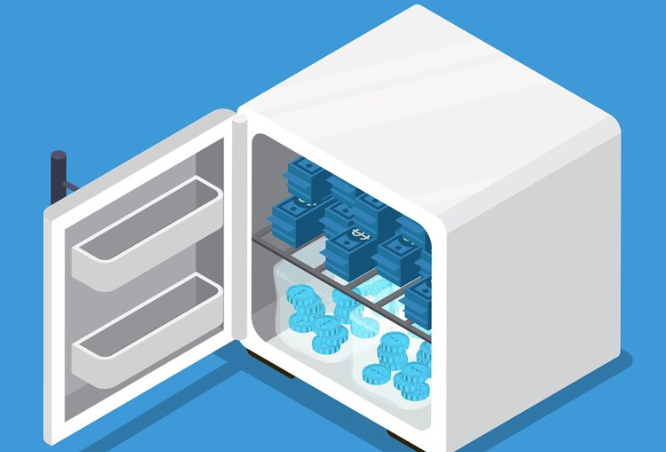In the commercial food industry, reliable refrigeration is a cornerstone of food safety and efficiency. Restaurants, hotels, and catering businesses rely heavily on commercial refrigeration equipment to store perishable items, maintain product quality, and prevent spoilage. However, like any critical equipment, refrigeration units can face challenges that, if not properly addressed, can lead to significant operational issues. In this article, we will explore some of the common challenges with commercial refrigeration equipment and provide solutions to help overcome them.
1. Inconsistent Temperature Control
One of the most frequent problems with commercial refrigeration equipment is inconsistent temperature control. This issue can cause food to spoil quickly or even lead to food safety hazards, particularly in environments where temperature-sensitive products are stored.
Causes:
- Faulty thermostats or sensors
- Overloading the refrigeration unit, which restricts airflow
- Frequent door openings, which allow warm air to enter the unit
Solution: Regularly calibrating the thermostat and ensuring sensors are functioning properly can prevent temperature fluctuations. Train staff to minimize door openings and avoid overloading the unit to allow proper airflow. A maintenance routine, including cleaning condenser coils and ensuring proper seals on doors, can further support consistent temperature control.
2. Refrigerant Leaks
Refrigerant is a critical component that enables the cooling process in refrigeration equipment. A refrigerant leak not only reduces cooling efficiency but also poses an environmental concern due to the harmful effects of some refrigerants. Leaks can result in the unit failing to maintain the desired temperature, leading to spoiled food and increased energy consumption.
Causes:
- Worn or damaged seals
- Loose connections in refrigerant lines
- Corrosion in the system
Solution: To prevent refrigerant leaks, schedule regular inspections with a qualified technician. They can identify early signs of wear or damage to seals and connections. If a leak is detected, it’s essential to have it repaired promptly by a professional to avoid further complications. Consider using environmentally friendly refrigerants, which can reduce the impact in case of a leak.
3. Compressor Failure
The compressor is the heart of any commercial refrigeration system, responsible for circulating refrigerant through the unit. When the compressor fails, the entire refrigeration system is compromised. A malfunctioning compressor can lead to reduced cooling capacity, causing food to spoil and equipment downtime.
Causes:
- Overheating due to dirty condenser coils
- Electrical issues
- Overloading the unit
Solution: To prevent compressor failure, regular maintenance is essential. Cleaning the condenser coils, checking for electrical faults, and avoiding overloading the unit can all prolong the compressor’s life. Additionally, ensure the unit is placed in a well-ventilated area to prevent overheating. If a compressor issue arises, contact a professional to diagnose and replace or repair the component as soon as possible.
4. Ice Build-Up
Ice build-up inside refrigeration units is a common issue, especially in freezers. Ice can form on evaporator coils or inside the unit itself, reducing airflow and making the equipment work harder to maintain the desired temperature. This extra strain can increase energy consumption and eventually lead to equipment failure.
Causes:
- Faulty door seals allowing warm air in
- Frequent door openings in high-humidity environments
- Poor defrost cycle management
Solution: Check and replace faulty door seals and gaskets regularly. Establish proper defrosting routines based on the type of commercial refrigeration equipment used. For high-traffic areas, installing automatic door closers or minimizing the duration that doors are left open can reduce ice build-up. If the problem persists, review the defrost settings and have the unit inspected by a technician.
5. Power Failures and Electrical Issues
Power failures or electrical surges can cause commercial refrigeration equipment to stop functioning suddenly, potentially leading to food spoilage and costly losses. Electrical issues within the unit, such as faulty wiring or malfunctioning components, can also contribute to poor performance.
Causes:
- External power outages
- Electrical surges or fluctuations
- Aging or faulty electrical components
Solution: Installing surge protectors can safeguard refrigeration units from sudden electrical fluctuations. In areas prone to frequent power outages, investing in backup generators or battery systems can prevent loss of refrigeration during a power failure. Regular inspections of electrical components and wiring within the unit are essential to detect potential issues before they cause major disruptions.
6. Excessive Energy Consumption
Commercial refrigeration equipment can be energy-intensive, particularly when it isn’t running efficiently. High energy consumption not only drives up utility costs but can also indicate underlying equipment issues that may eventually lead to failure.
Causes:
- Poor insulation
- Dirty condenser coils
- Malfunctioning components like compressors or fans
Solution: Ensuring that insulation is intact and properly installed can help maintain energy efficiency. Regularly cleaning the condenser coils and fans will also improve airflow and cooling efficiency. Additionally, upgrading to energy-efficient commercial refrigeration equipment with better insulation and energy-saving features can reduce consumption. Consider energy audits to monitor and optimize refrigeration performance.
7. Water Leaks
Water leaks can occur in commercial refrigeration units due to condensation, blocked drainage systems, or ice build-up. Not only can this lead to damage within the unit, but water pooling in and around the equipment can create hazardous working conditions and promote mold growth.
Causes:
- Clogged or damaged drain lines
- Condensation build-up
- Ice melting due to improper temperature management
Solution: Regularly check and clean the unit’s drainage system, ensuring it remains free of blockages. Monitor humidity levels inside the unit to reduce condensation. If condensation or ice becomes an issue, adjusting the temperature settings or defrost cycle may help alleviate the problem.
Conclusion
While challenges with commercial refrigeration equipment are common, proactive maintenance and timely interventions can prevent most issues from escalating. By addressing problems like inconsistent temperature control, refrigerant leaks, and compressor failures, businesses can ensure their refrigeration systems run smoothly, preserving food quality and minimizing costly repairs. Implementing regular maintenance schedules, training staff on proper usage, and conducting professional inspections are essential steps to keep your commercial refrigeration equipment functioning at peak performance.
